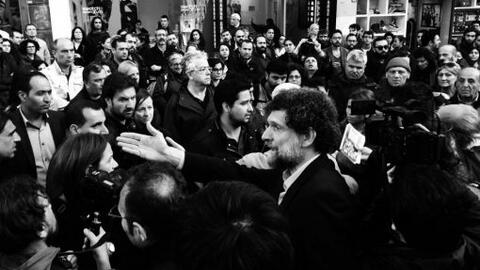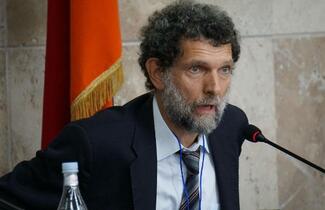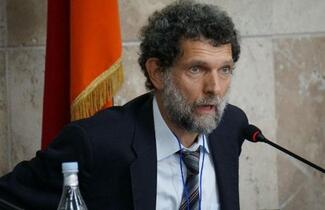
The joint statement of the Heinrich-Böll-Stiftung, the Robert Bosch Foundation, the Goethe Institute, the European Cultural Foundation and the Mercator Foundation to members of the Council of Europe, the European Parliament and the German Bundestag in full:
Osman Kavala has been held in pre-trial detention for over three years. Despite his acquittal by an Istanbul court in February of this year, a new charge was brought against him on 8 October 2020. We see no evidence for the allegations that have now been raised, which link him to the failed coup d’état attempt of 15 July 2016. According to the judgment of the European Court of Human Rights (ECHR), his continued imprisonment is a violation of the European Convention on Human Rights, of which Turkey is a signatory. The new bill of indictment accuses European and American organizations that operate in Turkey of engaging in intelligence activities. As organizations that are committed to building relations with Turkey and its people, irrespective of their religion, ethnicity or political opinions, we categorically reject this accusation.
We work in different ways to promote exchange with Turkish society with a view to strengthening European-Turkish relations. In times of growing social polarization in and around Europe, cross-border cooperation in the areas of civil society and culture have a vital role to play. We have been promoting such collaboration for many years through a variety of initiatives that we intend to further consolidate in the future – all over Europe, including in Turkey. We firmly believe that there are few viable alternatives to encounters, discussions and a joint search for the right path into the future. We can only achieve this by working together with Turkish partners on the basis of trust. With partners who are committed to dialogue and shared values such as the rule of law, open-mindedness and tolerance.
Osman Kavala is one of these partners. As the founder of the organization Anadolu Kültür and the supporter of a whole host of art and cultural projects, he has devoted himself for many years to better understanding between Turkey and Europe, as well as between people in Turkey.
The ongoing imprisonment of Kavala and the accusations that have now been levied against him constitute an attempt to criminalize this dialogue.
This course of action will harm not least Turkey itself in its efforts to paint a more positive picture of Turkey abroad, to attract foreign visitors and to present itself as an attractive economic partner for Europe. Without bridge builders between Europe and Turkey there can be no joint future.
We believe it is important for the Council of Europe to provide impetus for the reshaping of European-Turkish relations. A common understanding of constitutional and democratic principles must form the basis for lasting cooperative structures with Turkey. Among other things, this requires the Turkish government to meet the obligations to which it has committed itself. Without freedom there can be no basis for dialogue and exchange – it is the duty of the Council of Europe to translate this certainty into political action.
- Dr. Ellen Ueberschär, President, Heinrich-Böll-Stiftung
- Johannes Ebert, Chairman of the Board / Secretary-General, Goethe-Institut
- Prof. Dr. Joachim Rogall, President and CEO, Robert Bosch Stiftung
- Michael Schwarz, Executive Director, Stiftung Mercator
- André Wilkens, Director, European Cultural Foundation

